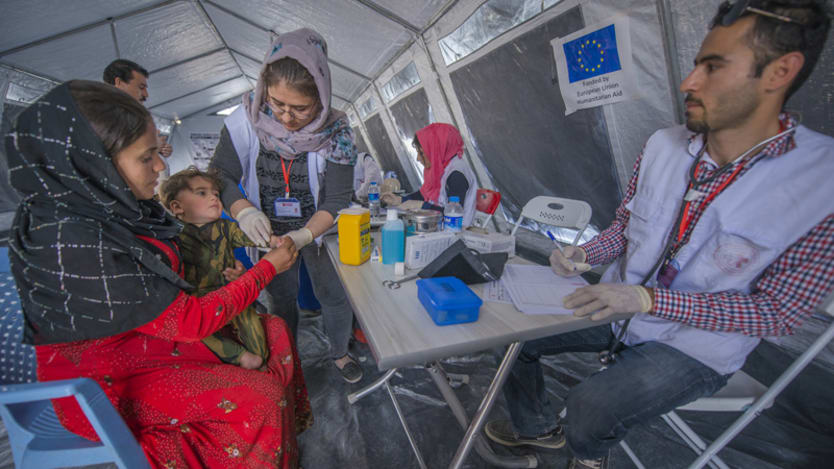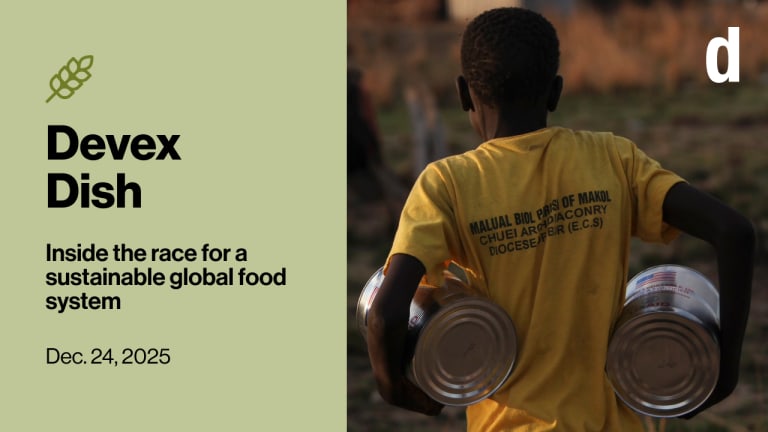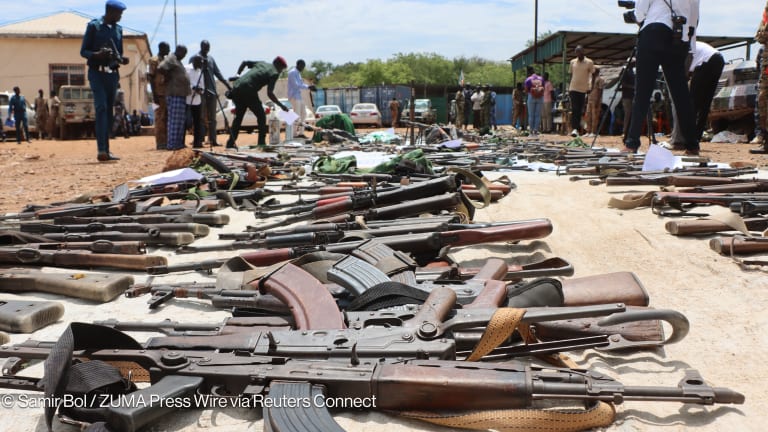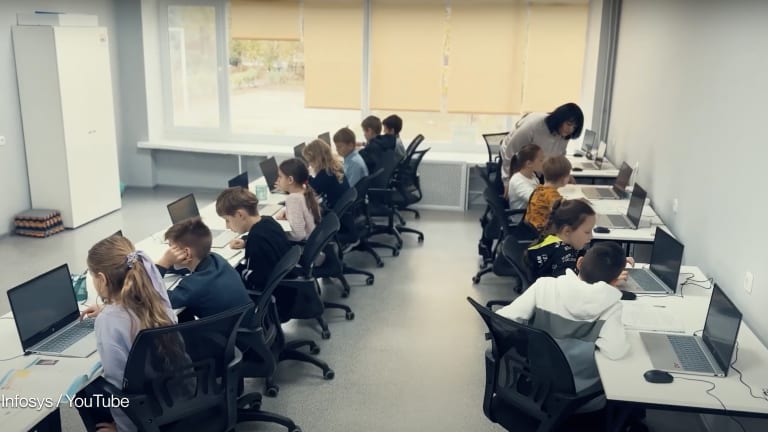
South Sudan, Yemen, Syria, Afghanistan, Nigeria, Burundi, Iraq. Not to mention Haiti, the Philippines, Colombia, Ethiopia and Bangladesh. The list could go on and on. So what ties these geographically, politically and culturally distinct countries together? The answer: crises and conflict.
Year on year, we’ve witnessed an increase in the frequency and ferocity of natural, manmade and complex crises and disasters. The trend is set to continue in 2017, with an estimated 100 million people likely to be in need of aid. The United Nations has just released its largest ever funding appeal, seeking over $22 billion across 33 countries.
Is the European Union ready to meet this demand? Worryingly, it appears not.
The bloc has just approved its annual budget for 2017, and the outcome for humanitarian aid was not good — funding set aside for preparing for and responding to emergencies has been slashed 22 percent compared to the 2016 pot. So while the needs have increased, the money available to respond to them has decreased.
This will have dire consequences on the lives, livelihoods and security of millions of people the world over. We know that children, particularly girls, will be among the hardest hit. Half of the 65.3 million forcibly displaced people in the world — the highest number since World War II — are children; children in conflict-affected countries are more than twice as likely to be out of school as those in other countries; in emergency situations, instances of sexual violence increase, yet the reported figures are just the tip of the iceberg — practitioners estimate that for each rape reported in connection with a conflict, 10 to 20 cases go undocumented.
The EU’s humanitarian arm, the Directorate General for Humanitarian Aid and Civil Protection, has prided itself on its ability to respond to crises whenever and wherever the needs arose. It has been one of the few donors committed to tackling forgotten crises, maintaining its support while others progressively abandoned the country and its people; it has made the case for investing in preparedness and mitigation, reducing the chances of a disaster occurring and lessening the impact when one does; and it has been at the forefront in ensuring the specific needs and rights of those most at risk, such as women and children, are protected.
Not so anymore.
In the face of competing crises and dwindling resources, the EU is making deliberate choices about which crises and conflicts it directs its funds toward. Humanitarian aid is supposed to be based on the principles of humanity, impartiality, neutrality and independence. But, increasingly, it is being repurposed to meet political objectives, based more on the self-interest of EU member states than on these humanitarian principles. Halting migration to Europe is apparently the number one aim.
Mass forced migration is one of the defining characteristics of our times, and the effectiveness of the international community’s response will determine how history judges us. But let us be clear: an effective response to the migration and refugee influx does not mean doing everything possible to keep migrants and refugees out, as has apparently become the norm in thinking among the EU and its Member States.
Nor does it mean pinching the purse strings for other emergencies, which may have a less immediate impact on the EU’s own interests. The woefully inadequate response to Hurricane Matthew, which killed hundreds in Haiti and completely destroyed large parts of the country, is a stark warning of the level of support many countries may face in future, with EU response envelopes all but empty for Latin America and the Caribbean while South Asia and Southeast Asia — two regions vulnerable to natural disasters — have been merged into one rather paltry pot. Not to mention Sudan and South Sudan, the Central African Republic or the Great Lakes Region — countries and regions whose humanitarian situation can’t be considered to have improved substantially in the past year — which are also facing sweeping cuts.
It begs the question: how have countries been prioritised and funds allocated? The underlying and fundamental principle that humanitarian aid is needs-based is, it seems, no more.
So, what’s the solution? To put it bluntly: more money, spent well. The so-called Grand Bargain, which the EU has signed up to and was so influential developing, is a package of reforms which aim to ensure adequate, effective and efficient humanitarian funding. It must be held to account for these commitments.
It is also means — at the very least — maintaining funding levels for humanitarian aid in the EU budget year-on-year. Only by doing so will the EU be able to ensure that adequate funding can be earmarked across geographies and sectors, without diverting funds or failing to meet critical needs of children and their families due to disproportionate, politically driven, spending.
At a time where multiple crises are causing compassion fatigue, the EU has the potential to set the standard by which others must follow — to provide adequate, predictable and impartial assistance to those most in need. Low, late and unpredictable funding will cost lives.
Now, more than ever, the EU needs to demonstrate leadership on the world stage, and defend the values it supposedly stands for. EU member states must dig a little deeper. Now and in future, our leaders have committed to making sure no one is left behind — including in disaster prone, conflict affected and fragile states where many of the world’s most vulnerable people live. Now they must prove they mean it.
Join the Devex community and access more in-depth analysis, breaking news and business advice — and a host of other services — on international development, humanitarian aid and global health.









